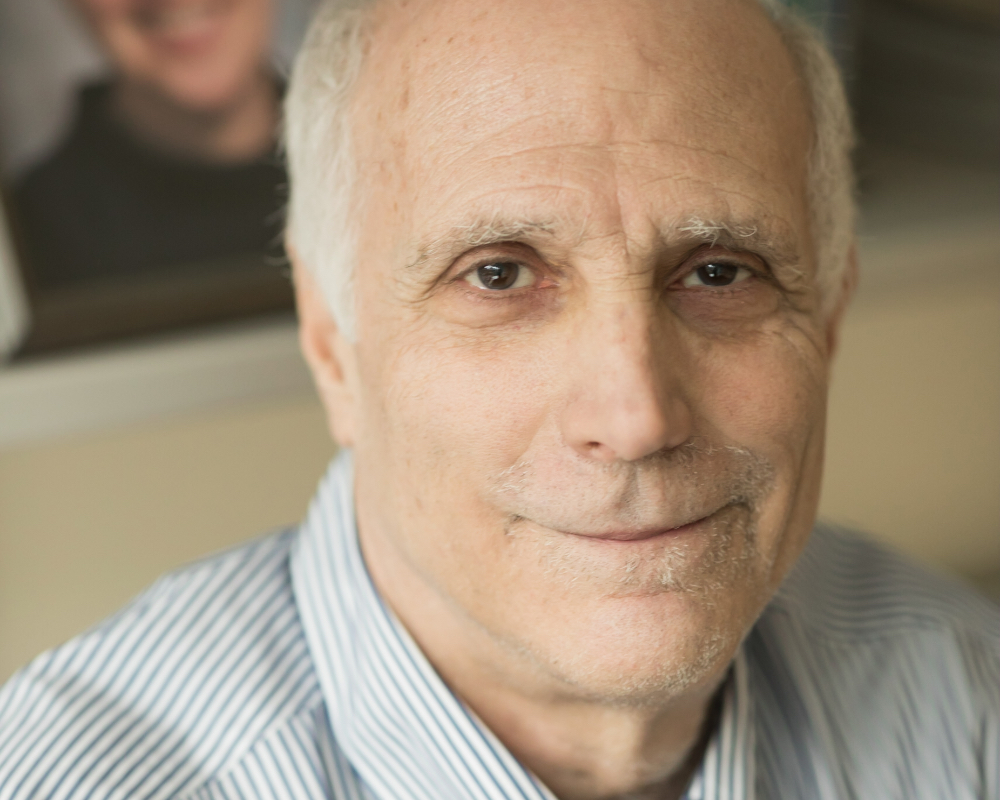
In memoriam: Elihu Estey
Dr. Elihu (Eli) Estey, professor in the University of Washington Division of Hematology, passed away on Oct. 8, 2021. He was 75.
Estey grew up in New York. He studied mathematics at Yale University, and received his MD at Johns Hopkins University. He completed his IM residency and then chief residency in neurology at New York University-Bellevue Medical Center, before joining MD Anderson Cancer Center in Houston to work with oncology pioneer Dr. Emil Freireich.
After nearly 30 years at MD Anderson, he was recruited to Seattle in 2008 to lead the Leukemia program at the University of Washington, Seattle Cancer Care Alliance, and Fred Hutchinson Cancer Research Center, and was responsible for its huge growth and prominence.
Patient care: Positivity and information
Estey was an expert in treating patients with acute myeloid leukemia (AML) and myelodysplastic syndrome (a bone marrow disorder).
He believed that one of the most important things he could do for his patients is inform them about clinical trials. “AML is the most common leukemia in adults, and treating it can be challenging due to its high number of chromosomal abnormalities,” he said. “For that reason, many of the patients I see are unlikely to do well when treated with standard therapies.”
By offering a choice between standard treatment and clinical trials, about 70 percent of his patients chose to enroll in a clinical trial, far higher than the national average of 3 to 5 percent.
When asked what he wanted his patients to know about working with him, he said:
If you’ve been diagnosed with acute myeloid leukemia (AML), you’ve probably heard a lot of pessimistic talk about your health and what’s to come — statements like, “Chemotherapy is horrible,” or, “You have three months to live.” I try to be the antidote to all that negativity. Now that we have a greater understanding of the genetics of AML, treatment is improving and people do get cured. While I won’t be a Pollyanna about your situation, I think it’s important for you to be prepared for success rather than failure.
Prolific researcher
His research focused on two main areas: Optimizing clinical trial methodology so that the design kept up with the complexities of medical practice (for example, monitoring multiple endpoints, such as survival and toxicity, rather than just one endpoint) and enhancing the treatment of AML and myelodysplastic syndromes by collecting and analyzing data, so that care decisions were based on evidence rather than convention.
A prolific researcher, he published over 675 peer-reviewed articles (with more than 200 scientific papers investigating these two areas alone), 100 invited papers, editorials, and letters to the editor.
“He was a thought leader and insightful collaborator, internationally, nationally and locally,” said Dr. Janis Abkowitz, head of the Division of Hematology. “He identified important (often overlooked) clinically-relevant questions and then searched for a student, resident, fellow or junior faculty member to help with the study or analysis. Often the comprehensive AML patient database that he developed served as the basis for his studies. He seamlessly integrated his mathematics background and Bayesian expertise into trial design and defining significance.
He was a rigorous clinical scientist, always demanding that of others, a wonderful citizen of academic medicine, a connoisseur of college and professional sports, and a tremendous friend. We are proud to have had him as a member of the Hematology faculty.”
Estey will be remembered for “being a true leader in leukemia care and research with uncountable contributions, an exemplary and generous mentor, and a brilliant ‘out of the box’ thinker who always challenged the conventional wisdom,” said Dr. Mazyar Shadman, associate professor in the Division of Medical Oncology. “He was the funniest and most humble person in the room, despite all the achievements. And he was full of energy until the last day and clearly enjoyed every second of his time as an academician.”
Estey leaves his wife, Cindy David, MD, and two children, Andy and Emily.